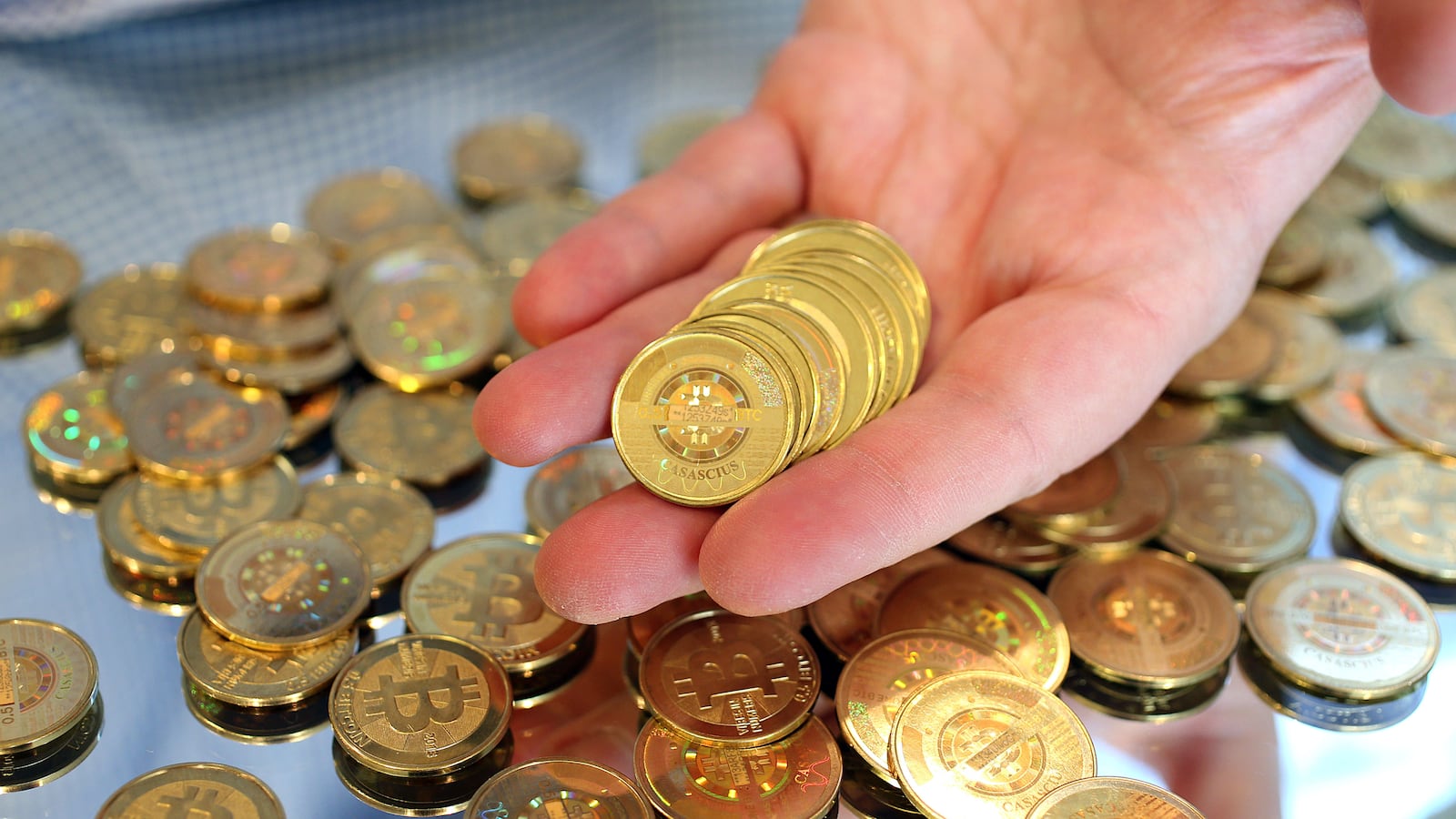If there’s one thing America learned about evading federal capture on Monday, it’s that pandas have a much harder time doing so than NSA leakers. Rusty the Red Panda’s escape from the National Zoo lasted less than 24 hours. Edward Snowden is still out there.

If only Rusty had a briefcase full of cash, opposable thumbs, or WikiLeaks, whose founder said in a call with reporters that the site is bankrolling Snowden’s flight to avoid prosecution. The move opens up the whistleblowing organization to possible prosecution for aiding and abetting a fugitive, and it could lead to new attempts to choke off WikiLeaks’ ability to collect and distribute cash, à la the 2010 blocking of payments to the site by entities such as Visa, MasterCard, and PayPal.
But there is another way for Snowden to remain a “free” man (much as anyone running from the most powerful spying agency in the world can be free): bitcoins, and other digital currencies that are encrypted, largely hacker-proof if properly stored, and passed from one user to the other, with nothing more than a few clicks of a button. Bitcoins are used as currency only because they’re made up of highly secure digital building blocks that users trust enough to barter with.
Snowden is apparently already using bitcoins, albeit indirectly. Ever since the credit-card companies’ 2010 chokehold, WikiLeaks has been accepting donations via the electronic currency. And maybe it’s a coincidence, but bitcoin donations to WikiLeaks jumped from about $20 per day last week to more than $700 on Monday, the day Snowden was reportedly headed from Moscow to Havana. (There was also a spike on June 13, the same day WikiLeaks founder Julian Assange gave a live video address to the University of Sydney, praising Snowden as a "hero.")
There’s an entire thread at Bitcointalk.org devoted to figuring out a way to donate the currency to Snowden directly, if users can find a way to set up an account and get him access to it. That could keep the fugitive flush and protect donors from prosecution, and in turn, could bolster bitcoin’s reputation.
“This is an excellent use case,” Jon Matonis, director of the Bitcoin Foundation, told The Daily Beast. “Payment should be separate from politics. Money should not be used as a method of identity tracking. And donors should be free to donate just as they would be free to donate hundred-dollar bills in the Salvation Army buckets.”
Matonis called himself a “big fan” of Snowden, though he cautioned that bitcoin as a currency doesn’t have any allegiance to the whistleblower or any one individual.
Bitcoin isn’t the only option to help WikiLeaks or Snowden. There are now several forms of encrypted digital currency out there; WikiLeaks suggests Litecoin as another option. But as the most-well-known form of digital currency, bitcoins could begin to play larger and larger roles in high-profile cases like Snowden’s. No longer does a fugitive need a suitcase full of cash to survive on the lam. Now he just needs a thumb drive full of bitcoins.
For Benjamin Wunder, it’s a future he can get behind. Wunder is a “miner” of bitcoins, which is a symbolic term that references the mining of silver or gold—the way currency was created before machines printed it on paper. Rather than digging into real earth, though, bitcoin “miners” get their loot by deploying software programs on their computers to solve complicated math problems. The bitcoin network (think of it as a virtual Treasury Department) issues bitcoins for every problem a miner solves, and thus the currency gets put into circulation.
“I do support the currency, and I find it fascinating how BTC is being used to subvert traditional money controls,” Wunder told The Daily Beast. “But for me, the endgame is making bitcoin. The political aspect is secondary.”






